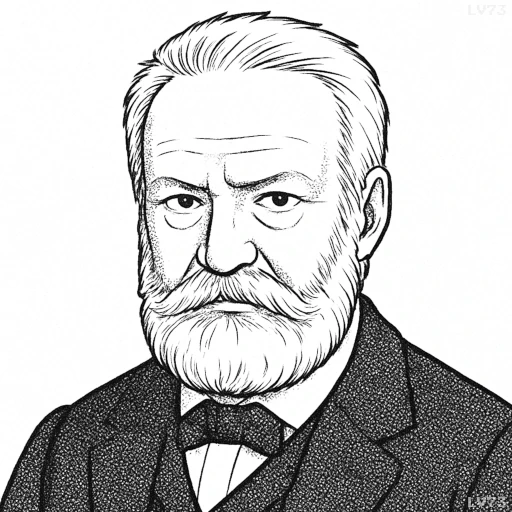“Reaction – a boat which is going against the current but which does not prevent the river from flowing on.”

- February 26, 1802 – May 22, 1885
- Born in France
- Author, poet, playwright
table of contents
Quote
“Reaction – a boat which is going against the current but which does not prevent the river from flowing on.”
Explanation
In this quote, Victor Hugo uses the metaphor of a boat going against the current to describe reaction—a force that opposes progress or change, yet ultimately does not stop the natural flow of events or ideas. The boat, representing reactionary forces, attempts to resist or slow down the course of progress (symbolized by the river), but the river, like the momentum of history or social change, continues its journey regardless. Hugo suggests that while reaction may momentarily alter the direction or pace of progress, it cannot stop it entirely. The river represents the unstoppable force of time, evolution, or reform, while the boat reflects those who resist change, whether through conservative ideologies, traditionalism, or opposition to new ideas.
This reflects Hugo’s belief in the inevitability of progress and the power of change. While reactionary forces may create obstacles, they are ultimately futile in preventing the advance of history. Just as a river cannot be permanently halted by a boat, the natural evolution of society, ideas, and culture will continue to flow forward.
In modern terms, this quote highlights the limits of resistance in the face of societal change. Whether in politics, technology, or social movements, opposition to change may slow things down, but it cannot ultimately stop the inevitable progress. Hugo’s words encourage us to recognize that, despite resistance, the forces of innovation and reform will continue to shape the world, regardless of those who seek to turn back the tide.
Would you like to share your impressions or related stories about this quote in the comments section?




